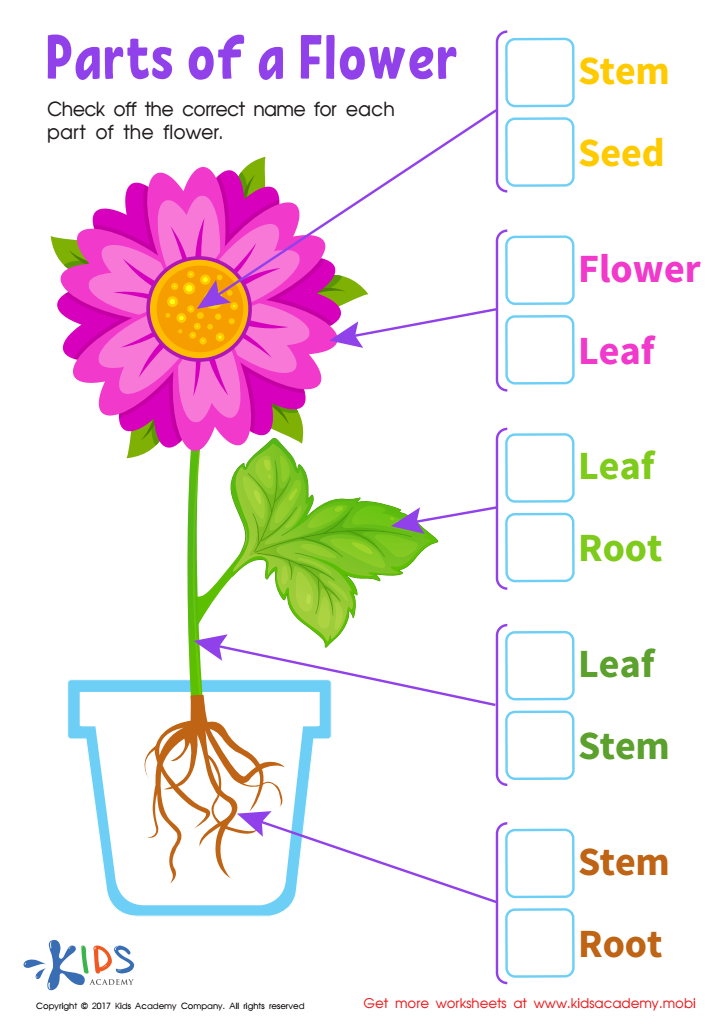Life Science Worksheets for Ages 5-9
3 filtered results
-
From - To
Explore our diverse collection of Life Science Worksheets for ages 5-9, designed to spark curiosity and enhance understanding of the natural world. Our worksheets cover topics from animal habitats to plant life cycles, tailored to young learners. Engaging activities and colorful illustrations make learning fun and interactive, fostering a love for science from an early age. Ideal for both classroom and homeschool settings, these resources support key educational standards and promote critical thinking skills. Turn every lesson into a captivating adventure with Kid's Academy's Life Science Worksheets, nurturing the next generation of nature enthusiasts and budding scientists.


Parts Flower Printable


Herbivores Printable


Carnivores Worksheet
Life Science is crucial for children ages 5-9 as it lays the foundation for understanding the natural world, fostering curiosity and an appreciation for living organisms. At this formative stage, young minds are naturally inquisitive and eager to explore their surroundings, making it an ideal time to introduce concepts like plant growth, animal behavior, ecosystems, and the human body.
Teaching Life Science to young learners supports cognitive development, encouraging them to observe, ask questions, and develop critical thinking skills. It also nurtures a sense of responsibility and care for the environment, instilling sustainable habits early on. Engaging in fun, hands-on activities—like growing plants from seeds or observing insects—makes learning relatable and enjoyable, helping kids to develop a lifelong interest in science.
Moreover, understanding Life Science enhances interdisciplinary learning as it integrates with subjects like math (measuring growth), literacy (reading about animals), and art (drawing life cycles). This holistic approach supports overall academic achievement and can lay the groundwork for future scientific learning and careers.
Ultimately, parents and teachers should care about Life Science because it enriches a child’s education, promotes environmental stewardship, and develops essential life skills that contribute to their growth as knowledgeable, responsible, and curious individuals.
 Assign to My Students
Assign to My Students






.jpg)








